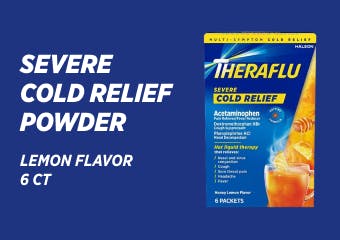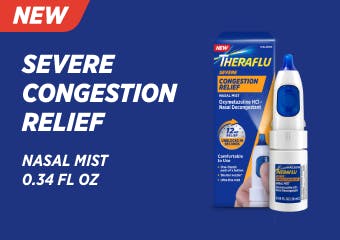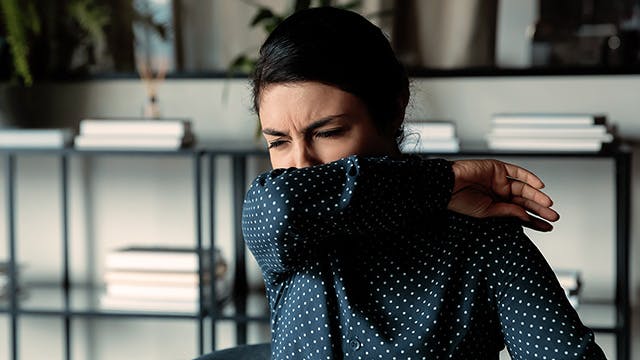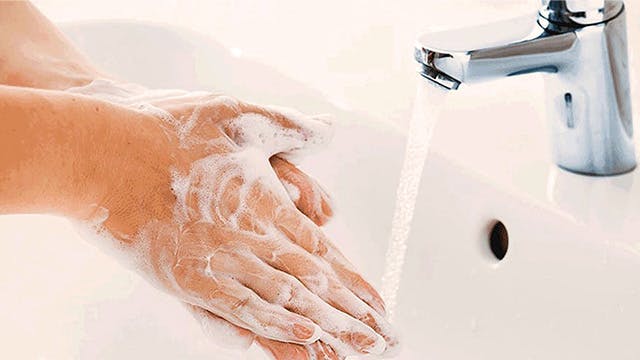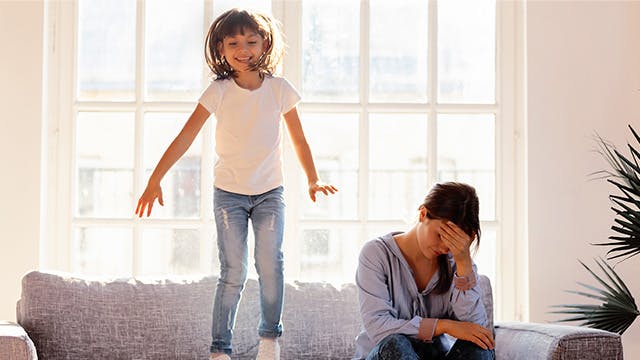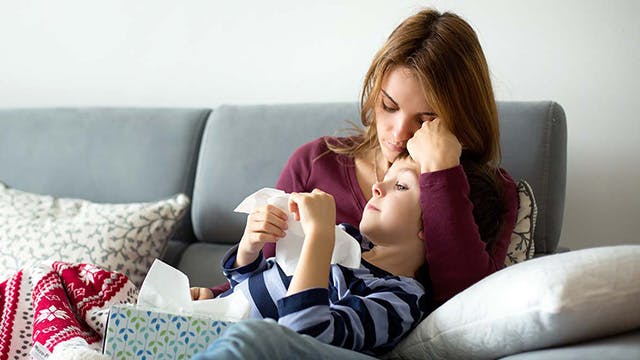All Doorknobs & Surfaces:
Regularly use sanitizing wipes on all doorknobs and surfaces to keep commonly touched places germ free.1 High touch surfaces like these can be cleaned daily, and after you have any visitors in your home.10 Some examples of frequently touched surfaces are doorknobs, light switches, countertops, and remotes.
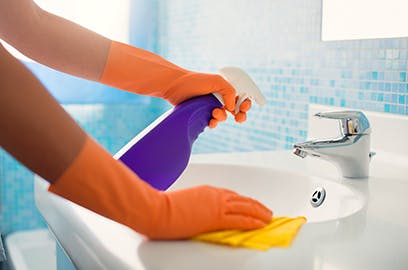
Regularly use sanitizing wipes on all doorknobs and surfaces to keep commonly touched places germ free. High touch surfaces like these can be cleaned daily, and after you have any visitors in your home.
Bathroom
*Tip: If you have an extra bathroom, reserve it for the sick individual in your home.
If possible, give your sick family member their own cleaning supplies so that they can disinfect surfaces after they’ve touched them. If you are cleaning up for them, wear gloves and a mask while cleaning the infected area to protect yourself.11
Toilet Seat:
Put the lid down prior to flushing because water sprayed in the air can spread germs.3
Sink:
Wash your hands after blowing your nose, sneezing or coughing so you don’t infect the things you touch.2 Keep separate cleaning cloths for both the sink and the kitchen counters, and clean the sink before moving on to the toilets and floors (clean in a highest to lowest order).7 Don’t share personal items on the sink such as toothbrushes or washcloths.
Kitchen
Refrigerator:
Open and close the door by grabbing the dish towel. Wash it periodically with your laundry.3 Remove spoiled or expired food in a timely manner and regularly wipe down the inside of the refrigerator with soap and water to remove any lingering residue.7
Sink:
Don’t let dirty dishes build up in the sink since germs can stick to them.1
Counter:
Be mindful of coughing near food sitting out as airborne germs can stick to it.3 Clean the kitchen counters often using a household cleaner.
Stove:
If you’re sick, try not to do any cooking for others until you’re feeling better. You might contaminate the food.2
Be mindful of coughing near food sitting out as airborne germs can stick to it. Clean the kitchen counters often using a household cleaner.

Living Room
*Tip: If you have a den, make that the “sick room”
Coffee Table:
Don’t leave dirty dishes or used tissues out since they can accidentally be touched.1
TV Remote:
Use hand sanitizer before holding the remote as others may handle it throughout the day.3
Couch:
To keep germs to yourself, use your own blanket to get comfy with and not one used by all in the house.
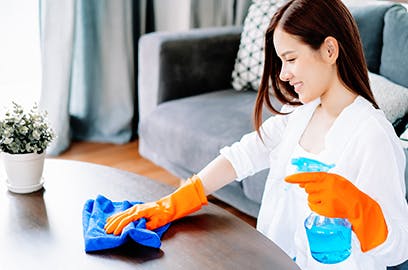
Don’t leave dirty dishes or used tissues out since they can accidentally be touched.
Bedroom
Basket:
Discard used tissues in a closed wastebasket so germs are kept under wraps.3
Bed:
If you share a bed, change your sheets as often as possible as they collect dead skin and sweat throughout the night. Pillowcases should also be changed every day.3
Humidifier:
A cool mist can help slow or prevent the spread of germs.5
Protecting Your Child from Getting Sick
Now that you know the importance of keeping your home clean to prevent the spread of germs and bacteria, here are some helpful tips for protecting your children from germs that are found within and outside of your home.
One of the best ways to protect your child from colds and the flu is to help them maintain distance from people who are actively sick, including minimizing contact with your child if you fall sick yourself. Following our tips listed above, like cleaning popular shared surfaces to remove any lingering germs, viruses, and bacteria, will foster a safer environment for your child and lower their chances of getting sick. Teaching them to wash their hands, avoid touching their face, and cover their mouth when sneezing or coughing will also help reduce their chances of getting sick come flu and cold season.8
Looking for protection against the flu? The CDC recommends that everyone over the age of six months receive their flu shot annually, as it is our best defense against the flu and flu related complications.8
